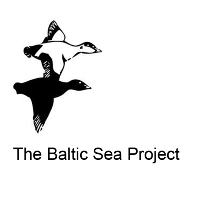Learners' Guide 3 - Environmental Education From Words to Action for Sustainable Development.

The book presents ideas and examples of the UNESCO Baltic Sea Project environmental education focusing on the Baltic Sea and Agenda 21. When environmental awareness began to grow some 30 years ago, most people believed that most problems could be solved by new technology og by demands on industry. Today we realize that this is not enough and probably not even the most important road towards the future. Instead the focus is on lifestyle, a focus that has shifted the responsibility back to each and everyone in the society. Our everyday choices are what will matter for our future common environment. The first part of the book describes the preparations for the conference 'From Words to Action' in Nyköping, Sweden, June 1997, and includes a short version of Agenda 21, the themes the schools chose, examples of school activities and students' suggestions for sustainable development. Next follows the lectures that were presented at the conference, which were all based on Agenda 21 and meant to inspire the students' team work. The third and most important part of the book is a description of the workshops - what the students did, what they discovered and what activities they suggested for schools to undertake when they returned home (an Agenda 21 for schools). To make environmental sustainable choices in our everyday lives require knowledge. We cannot leave the decisions to experts but must all take part. Therefore, environmental education is more important than ever and must also have a new content. The focus should be on the longterm costs of our current way of living, with the high turnover of energy and raw materials and its high mobility. It should analyze, question and reform our consumption-oriented society. The book is the third in a series of Learners' Guides to further the goals of the BSP. It is for secondary and upper secondary students and teachers participating in the Baltic Sea Project. It can also be used by other schools, groups or individuals interested in studying the Baltic Sea. The book was produced under the framework of the Baltic Sea Project by National Agency for Education in Sweden in cooperation within the UNESCO Associated Schools Project.
Contents
Preface
To the reader
Introduction
1. Agenda 21 - an action
program for the BSP
Preparing for the conference
2.
Setting the stage
Lectures based on Agenda 21
3. Promoting
education (chapter 36)
4. Youth compaign for survival (chapter 25)
5. Sustainable development
6. Consuming our future (chapter 4)
7. Sustainable neighbourhoods (chapter 7)
8. Energy for the future (chapter 9)
9. Protection of the Baltic Sea (chapter 17)
10. Sustainable lifestyles
Conclusions at the conference
11. Activities to undertake
12. Getting to talk to the politicians
How to do it
13. Running an ecorace
14. Performing for the environment
15. Building a solar collection
16. Building a windpower station
Appendices
1. Thematic preparations - a list of schools
2. Concise Baltic Agenda 21
The book can be ordered through:
Liber Distribution
Publikationstjänst
SE-162 89 Stockholm
Sweden
Telephone: +46-8-690 95 76
Telefax: + 46-8-690 95 50
E-mail adress: skolverket.ldi@liber.postnet.se
Language: English
Copyright 2004 © Baltic Sea Project
Connection to UN- Global goal 11:
https://sustainabledevelopment.un.org/sdg11
- Goal 11. Make cities and human settlements inclusive,
safe, resilient and sustainable
- 11.1 By 2030, ensure access for all to adequate, safe and affordable housing and basic services and upgrade slums
- 11.2 By 2030, provide access to safe, affordable, accessible and sustainable transport systems for all, improving road safety, notably by expanding public transport, with special attention to the needs of those in vulnerable situations, women, children, persons with disabilities and older persons
- 11.3 By 2030, enhance inclusive and sustainable urbanization and capacity for participatory, integrated and sustainable human settlement planning and management in all countries
- 11.4 Strengthen efforts to protect and safeguard the world’s cultural and natural heritage
- 11.5 By 2030, significantly reduce the number of deaths and the number of people affected and substantially decrease the direct economic losses relative to global gross domestic product caused by disasters, including water-related disasters, with a focus on protecting the poor and people in vulnerable situations
- 11.6 By 2030, reduce the adverse per capita environmental impact of cities, including by paying special attention to air quality and municipal and other waste management
- 11.7 By 2030, provide universal access to safe,
inclusive and accessible, green and public spaces, in particular
for women and children, older persons and persons with
disabilities
- 11.a Support positive economic, social and environmental links between urban, peri-urban and rural areas by strengthening national and regional development planning
- 11.b By 2020, substantially increase the number of cities and human settlements adopting and implementing integrated policies and plans towards inclusion, resource efficiency, mitigation and adaptation to climate change, resilience to disasters, and develop and implement, in line with the Sendai Framework for Disaster Risk Reduction 2015–2030, holistic disaster risk management at all levels
- 11.c Support least developed countries, including through financial and technical assistance, in building sustainable and resilient buildings utilizing local materials.
- ( http://www.un.org/ga/search/view_doc.asp?symbol=A/RES/70/1&Lang=E )



